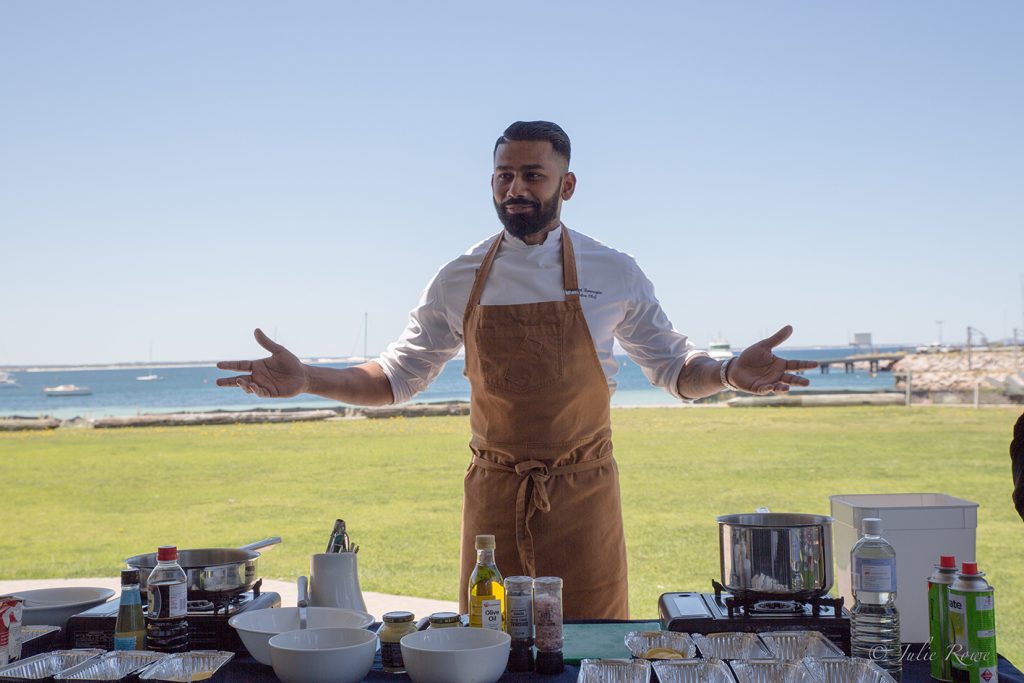MSC Case Example: Hilton Chain Leads on Seafood Sustainability

Two years ago, Hilton Singapore was the first hotel chain in Asia to achieve Marine Stewardship Council (MSC) and Aquaculture Stewardship Council (ASC) chain-of-custody certification, meaning that diners at food outlets operated by Hilton Singapore can rest assured that seafood dishes labelled with respective ecolabels have been prepared with seafood sources that are sustainably caught and farmed.
This certification was part of a bigger picture of the Hilton Hotel chain’s “sustainable seafood journey” towards its future goal of using sustainable products and services where feasible. By 2022, the chain aims to use at least 25 percent of its total global seafood procurement volume from MSC certified fisheries and ASC certified farms.
The remainder of Hilton seafood items will be purchased from fisheries and farms that have entered the official process of full assessment for certification against MSC or ASC standards, comprehensive fishery improvement projects, aquaculture improvement projects aiming to meet the ASC standards, and species listed as “green” on WWF seafood guides.
Hilton Hotel Chain’s Journey so Far:
- 2014: Focused on seafood sustainability and traceability strategy across Hilton properties.
- 2015: Announced it is the first global hotel company to serve Marine Stewardship Council (MSC) eco-labelled and certified cod in its restaurants in 41 properties across the U.K., Netherlands and Belgium.
- 2015: Conducted a risk and capability analysis of their supply chains, identifying seafood as a high-risk category.
- 2015: Hilton Singapore becomes first hotel in Asia to achieve MSC and ASC chain-of-custody certification.
- 2016: Announced a comprehensive shrimp program with Sysco and their Portico line to improve the responsible sourcing of our farmed shrimp for North America.
- 2016: Announced its global commitment to responsibly source its seafood by 2022 – that is, seafood that is managed in an environmentally and socially responsible manner.
- 2016: Selected and analysed available seafood purchasing data across more than 350 hotels, 500 suppliers and 57 species groups, to establish a baseline of its seafood purchasing data.
- 2016: Rolled out training materials on responsible sourcing and sustainable seafood to its employees across the world.
- 2016: Committed to eliminate the procurement of endangered species, as identified by WWF.
MSC invited Vijayakant Shanmugam, Executive Chef at Hilton Singapore, to celebrate the certification of WA abalone last week and to strengthen his understanding of the certification process.
Mr Shanmugam noted that the health of our ocean and seafood supply globally was a concern to everyone, including chefs, worldwide and commented on WA’s leadership towards sustainable fisheries.
“Guided by Hilton’s global sustainable seafood commitment, I am always on a look out for sustainable seafood options – the more the merrier.”
“As such, I highly anticipate more fisheries like West Australian Abalone Fishery to achieve sustainability certification so that collectively, we can address the environmental and social impacts of our supply chain,” concluded Vijayakant Shanmugam, Executive Chef, Hilton Singapore the first MSC and ASC certified hotel in Asia.
Prior to Hilton Singapore’s Chain of Custody certifications, consumers in Singapore only had the option of purchasing MSC-and ASC-certified seafood produce and products at selected supermarkets and seafood purveyors in the country.
This is an important case study which shows that through initiative and commitment to source sustainable seafood, companies like Hilton can have a big impact reducing our environmental footprint and allowing consumers to make informed seafood choices.
For further information about MSC and the work they do head to: https://www.msc.org/
